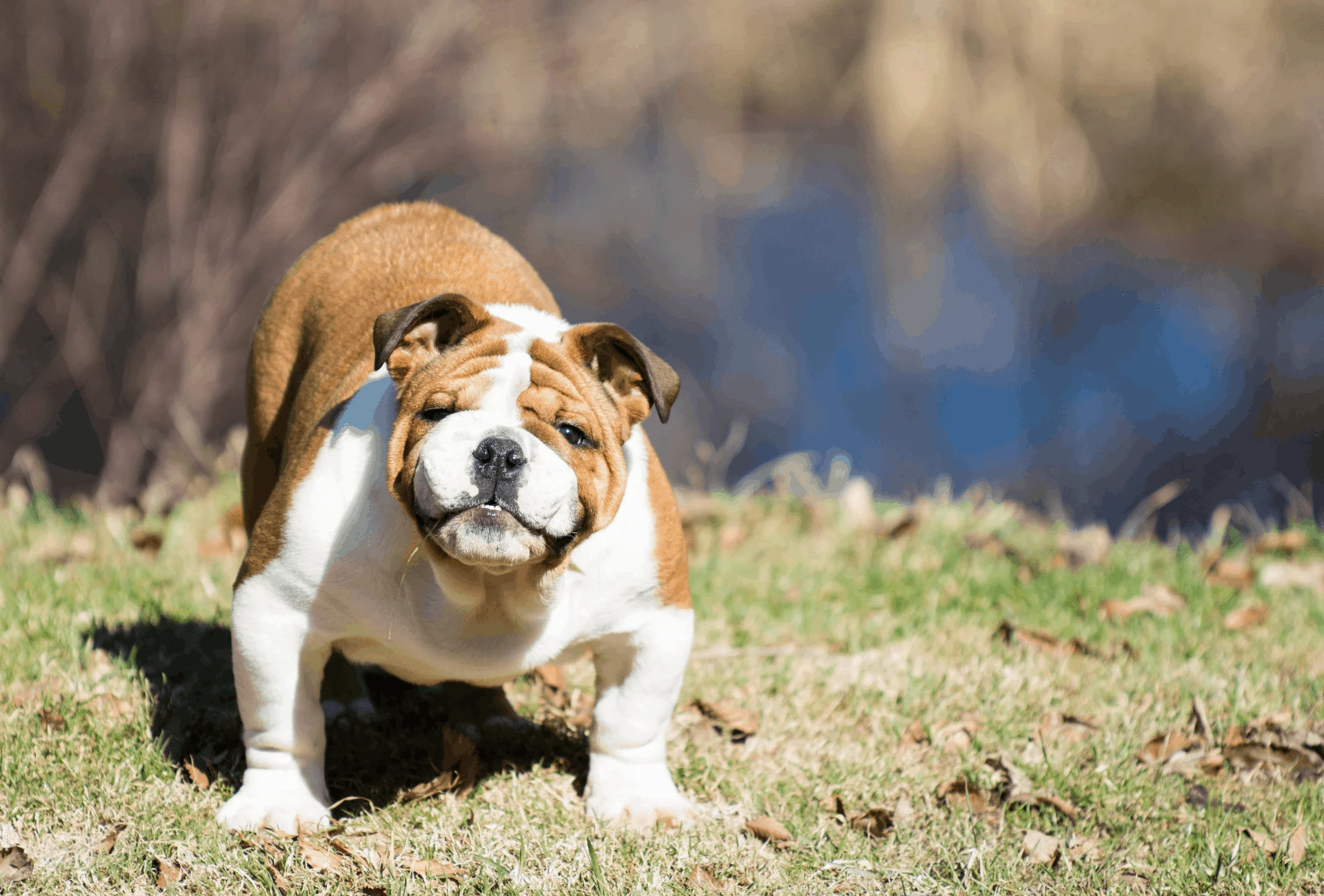An occasionally sneezing dog is a completely normal sight and can have many causes, most of these are harmless.
But what about if the sneezing attacks occur time and time again, sometimes erupting into a true sneeze fest.
Dog Sneezing Attack
Causes for your dog’s sneezing attack range from sneezing when excited, play sneezing, foreign objects, chemical household products, and allergies, all the way to serious issues like infections or nasal tumors.
Sneezing in dogs can have various reasons that range from more severe to mild and preventable causes.
Foreign Objects
The most common cause of sneezing in dogs is a foreign body that got stuck in their nose.
Symptoms are pawing at the nose, sneezing, and nose bleeding.
Especially hunting breeds that have their noses deep in holes are at risk for that.
My Rottweiler certainly isn’t a hunting dog but nobody told her that.
If the object is stuck too deep and your dog cannot get it out by himself, medical attention will be needed.
Household Products
Any household products with chemicals and scents like cleaning products, cologne, deodorants, and cigarette smoke can cause an irritated nose in dogs.
You should keep away dogs and children from any strong chemical scent that could cause repeated sneezing and lung issues.
Dog Sneezing When Excited
In many cases, dogs sneeze when they’re excited. You may have observed it before when your dog is playing with humans or other animals.
It is a healthy and normal sign (most common in small breeds) that your dog is excited about the play and enjoys it.
It’s also an appeasement sign that this game means only play and nothing else. You can read more about this below.
Positive stress is often accompanied by other physical signs like excessive panting (most often in the car, either because your dog dislikes car rides or he’s excited to arrive at the destination).

Nasal Tumors
Nasal tumors and cancer
Sadly, it’s hard to cure to this day and not many had success.
Infections
A viral or bacterial infection mostly causes coughing in dogs while the Aspergillus fungus is the main cause of sneezing. Your dog can get infected by inhaling the dust of the fungus.
If your dog shows signs like repetitive sneezing, nose bleeding, nose pain, and visible swelling, take him to the vet immediately.
Similar symptoms can be caused by nasal mites that can enter your dog’s nose while he is digging or smelling on the ground.
Allergies
Allergies are not as common in dogs as they are in humans but they can occur.
Dog Sneezing When Playing
Play-sneezing generally means that your dog is healthy and excited. It is also a form of communication while playing with other dogs.
Dogs send many signals while interacting with other dogs. Sneezing can be a calming signal and means that your dog needs to take a break and he is telling others that he might need a time out.
It can also be a call for attention if he wants to play with another dog who is currently not so engaged.
Sneezing also tells the other dog that this is only a play fight and not serious at all.
Play sneezes don’t come from the lungs and sound more like a snort. You can actually train a dog to sneeze when he doesn’t want to play anymore.
A deep sneeze would be more linked to a cold or an allergy. If he sneezes more frequently even when he is not playing, this means you should check him with a vet.
Recommended Reading: How I calmed my overexcited Rottweiler
Nasal Mites in Dogs
Nasal mites (Pneumonyssoides Caninum) can affect dogs of any breed and age. They transmit through direct or indirect nasal contact with an infected dog.
Nasal mites exclusively live in the nasal passage of canines and feed on the keratin layer.
Those mites are visible to the naked eye and cause different symptoms. The more mites your dog has in his nose the more severe the symptoms are.
If your dog is frequently sneezing, has issues breathing, bleeds, and shakes his head a lot then you should go and see a vet.
His breathing can become louder, he can start coughing and may have a difficult time smelling.
The vet will either treat your dog with a parasiticide or a drug that is effective against the mites.
Snorting in Dogs
Dogs snort more frequently when they have a mechanical
Dogs that have too much excess weight will also snort more often as they often have problems with breathing.
What You Can Do
You probably know what your dog’s healthy nose usually looks like.
Look out for any changes and see if the nose is dry, cold, hot, or has any other changes to it. Take a flashlight and look for foreign objects, something that got stuck in there.
Examine the nasal discharge your dog has. Unhealthy discharge is yellow, chunky, and smells bad.
Observe your dog’s overall health and see if he has normal energy, drinking and eating or if he is lethargic and doesn’t seem to feel well.
Note when and how often the sneezing is happening.
Is the sneezing mostly happening outside in the spring or summer? Is the sneezing severe and violent? Is he sneezing after a meal or accompanied by fever? Is discharge coming from both sides or just one?

Home Remedies for a Sneezing Dog
Home remedies can be given to dogs with mild symptoms and can accompany a treatment by the vet. I have listed a few remedies that will help your dog heal more quickly. Consult your vet before you try any of the below:
- Herbs: Herbs like echinacea boost your dog’s immune system and help his body fight against bacteria and viruses.
- Nose drops: There are many different nose drops that can moisture a dry and irritated doggy nose. Nose drops can also help with infections and a runny nose.
- Aloe: Apply a drop of aloe vera on your dog’s red nose daily until it goes back to normal.
When Should You Visit the Vet for Sneezing Attacks?
Veterinary attention is required with sneezing attacks if they are extremely persistent or accompanied by blood or other symptoms.
- Higher temperature
- Repetitive sneezing without cause
- Nose bleeding
- Pain
- Sneezing that continues for more than 3 days
- Swelling
- Visible foreign body
- Fatigue
- Refusing to eat or drink
Oh, and there’s the reverse sneeze of course.
In some cases, the veterinarian will give your dog anti-inflammatory, decongestant, or antihistamine medications but in general, the reverse sneeze should resolve on its own.
You can support your dog by calming him down and gently massaging his neck or nose bridge with the right technique.
As long as you stay calm in order to avoid your dog getting all riled up and then you and your dog should be fine.

Auala
Friday 28th of June 2019
Thanks for your helpful advice.